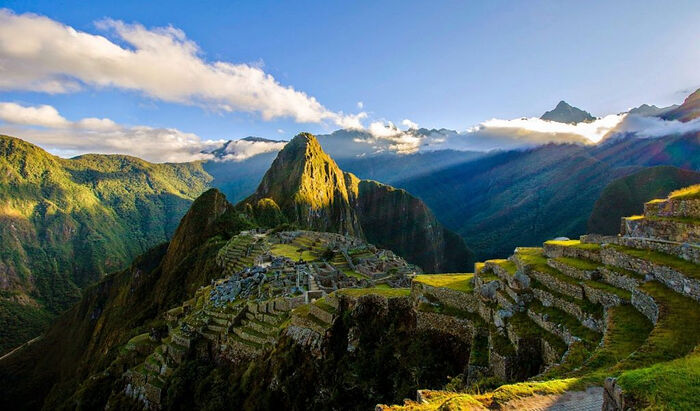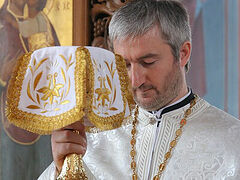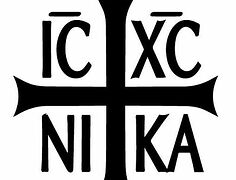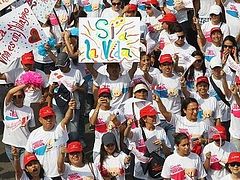Continuing of our series of “geographical” interviews on Latin American countries we decided to drop in on Peru. Hieromonk Innokenty (Karpov), rector of the parish of St. Matrona of Moscow in Lima, the capital of Peru, cleric of the Diocese of Argentina and South America of the Moscow Patriarchate, talks about how the people of the jungle differ from the people of the mountains, how a Russian parish became Antiochian and what for a believer is the main challenge of the times.
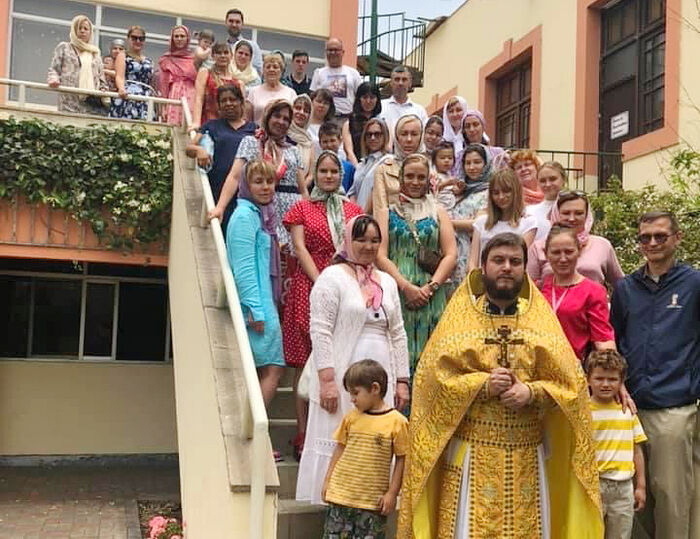 Parish of Blessed Matrona of Moscow, Lima, Peru
Parish of Blessed Matrona of Moscow, Lima, Peru
—Fr. Innokenty, how did you come to the faith?
—I came to the faith out of a conscious choice. I grew up in the family of a priest, but my father never insisted on who I should be. Of course, the atmosphere in the family had a beneficial effect on the formation of my personality, but still it was my personal decision to serve God, the Church and people.
—But did your father’s example influence your decision?
—You see, I am convinced that every person should be where the Lord ordains him to live, so I do not accept such comparisons: “Where it is better and where it is worse; who is better and who is worse.”
—How did you end up in Peru?
—I came to Peru with the blessing of His Holiness Patriarch Kirill of Moscow and All Russia.
—What were your first impressions of the country? Did you experience culture shock?
—Yes, of course, at first everything was new for me, especially the local mentality, which is the exact opposite of ours.
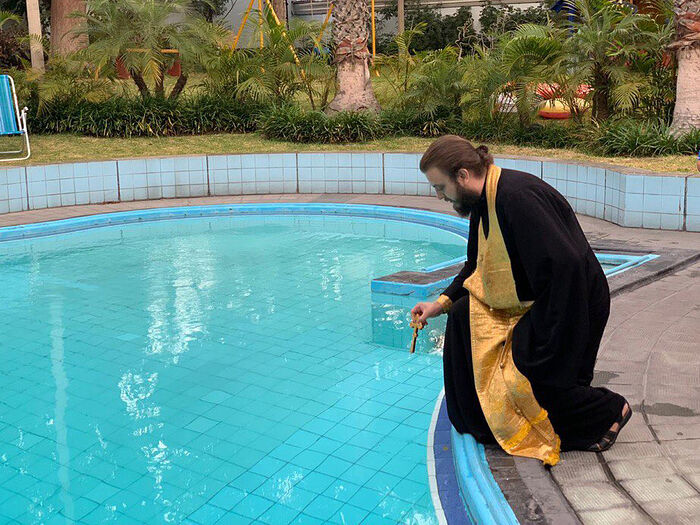 The Blessing of the Waters on the Feast of the Theophany. Southamerica.cerkov.ru
The Blessing of the Waters on the Feast of the Theophany. Southamerica.cerkov.ru
—Do you like it here in Peru? Have you ever had a desire to return to your homeland?
—As to whether I like it in Peru, I will answer honestly: Yes, I do. I have had no desire to leave Peru and come back to Russia, since to live and serve here is my obedience. But, of course, my Motherland is always in my heart.
—Tell us about life in Peru: its people, atmosphere, advantages and disadvantages. Give us a more detailed picture of what it looks like through the eyes of a Russian.
—Life in the country is very diverse, as there is a mix of different cultures—for example, Spanish and indigenous. The difference in the local peoples is also clearly visible. The people of the jungle and the people of the mountains are very different.
It should be added that Peru is a multiethnic country, unlike Argentina or Chile. Historically, Lima is a very ancient city: Civilization existed here long before the arrival of the Spaniards. Peru is a country of religious, economic, and social contrasts.
—When did Orthodoxy appear in Peru?
—Orthodoxy appeared in the country several decades ago. In the 1950s, the first Russian Orthodox community was set up, and an Orthodox church was built. But over time, the ethnic makeup of the parish changed. At the moment, the church is under the jurisdiction of the Patriarchate of Antioch.
—Now let’s move on to your parish. Tell us about its history. How was the idea of building a church here born, and who initiated it?
—Our parish still does not have its own church due to high prices for land and construction. At present, our community rents a building from the Roman Catholic Church. The parish was founded in 2010 through the efforts of parishioners who have lived in Peru for many years. In 2011, the community was transferred to the Russian Orthodox Church of the Moscow Patriarchate.
—Is the community large today? Does it consist of Russians, or are there representatives from other ethnic groups as well?
—Our community is comprised of both Russian-speaking and Spanish-speaking parishioners. In terms of numbers, it is difficult to say in detail: some are leaving Peru, while others are coming. We have about twenty permanent members of the community. But, I repeat, the number of people attending our services varies all the time depending on their circumstances in life.
—Can you give us the most striking example of a conversion of one of the locals to Orthodoxy?
—There was one memorable example. Besides Russian speakers, there are Peruvians who do not know Russian singing in our choir. Our choir director teaches them to sing, and they learn the words of the services in a Latin transcription. All the Peruvian singers are students of the Conservatory. Some are preparing to convert to Orthodoxy. One of our singers, a Catholic Peruvian, was sent to Russia, to St. Petersburg as part of his training. There he embraced Orthodoxy. He went into a church where the priest spoke English and talked with him for a long time. According to him, he converted to Orthodoxy quite unexpectedly, but it was his conscious decision.
—Are there any distinctive characteristics in your parish life? What language do you worship in?
—Of course, we celebrate services mainly in Church Slavonic and occasionally in Spanish.
—Are your parishioners involved in the life of the community?
—To be sure, we have some active parishioners, and they help the parish a lot when they have an opportunity. The Parish Council and the Parish Assembly work in accordance with the statutes of the ROC MP.
—Do you have any educational, charitable, or social projects?
—As the rector of the parish, I am a member of the Coordinating Council of Organizations of Russian Compatriots in Peru, and our parish, together with the Council, organizes children’s exhibitions, charity concerts and other events. We also work closely with the Russian House (cultural center). We support the home for children with cancer as well.
—Do you manage (if it is necessary) to interact with non-Orthodox Christians and representatives of other faiths?
—We interact with the Roman Catholic Church. We should not forget that we are on their territory. Over ninety-five percent of the population in Peru is Catholic. We have no contacts with representatives of other faiths, though.
—What serious spiritual questions from the parishioners have you as a pastor encountered in your ministry?
—Sometimes parishioners ask me very complicated questions, which are hard to answer right away. In this case I am guided by the Holy Scriptures and the Holy Tradition. And, of course, I turn to my spiritual father—he lives and serves in Russia, and we are in touch all the time. In addition, every priest should understand that there is a ruling bishop, without whose blessing nothing is done in the diocese in spiritual, theological and administrative matters.
—What do you consider the challenge of our times for Orthodox Christians? And specifically in Peru?
—The challenge of our times for a modern Orthodox Christian… In my personal opinion, the most important thing in our time is to live as the Church teaches us. This applies to both liturgical and spiritual life. Unfortunately, in recent years we have seen quite a few innovations in the Church, but it is necessary to preserve and value what the Church has carried through the centuries and washed with the blood of martyrs.
—In conclusion, I will ask our traditional question: What words from the Holy Scriptures especially inspire and support you in difficult moments of your life?
—I find consolation in the words from the Book of the Prophet Isaiah from the Old Testament: For I the Lord thy God will hold thy right hand, saying unto thee, Fear not; I will help thee (Is. 41:13).


